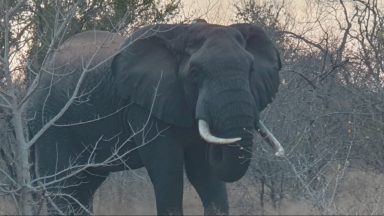The positive health benefits of birds for our well-being cannot be overstated. During the pandemic, people across the world reported listening to and watching birds like never before, with birdsong as a source of connection to nature.
As well as bringing comfort and joy to humankind, birds play a pivotal role in all of our lives as an intricate component of healthy ecosystems. Birds play an important role in the effective functioning of ecosystems such as forests, wetlands and oceans, helping to keep the climate stable and transform pollutants into nutrients. From pollination to ecosystem engineering, birds are crucial to our planet and our survival.
Peace Parks and partners face a huge challenge when it comes to protecting bird populations. Their wings! The fact that birds are the most mobile creatures on Earth, many travelling tens of thousands of kilometres each year across vast landscapes, means that, unlike animals, they cannot simply be translocated into protected areas.
Around half of the world’s bird species migrate, with more than 100 of these species recorded in southern Africa. But, habitat loss, pesticides, and hunting and trapping on stopover grounds have taken a major toll on bird numbers. The survival of migratory birds in particular depends on the availability of well-connected networks of habitats along their routes, which they use for feeding and resting.
Peace Parks Foundation works to restore ecological linkages across southern Africa through the creation of transboundary conservation areas. The hope is that by protecting birds’ breeding and wintering grounds as well as the places they stop to rest and recuperate on their long migrations, bird population decline can be reversed.
Here in Mozambique’s Maputo Special Reserve, hundreds of bird species arrive to feed on the fresh supply of food that comes with the rainy season. Attracted to the large landscape, shallow swamps and abundant food supply, Banhine National Park also attracts large populations of the Great White pelican who come here to breed.
The hope is that transfrontier conservation areas will provide safe havens for birds, so they can continue to play their role in our ecosystem as well as gracing us with their beautiful songs.

